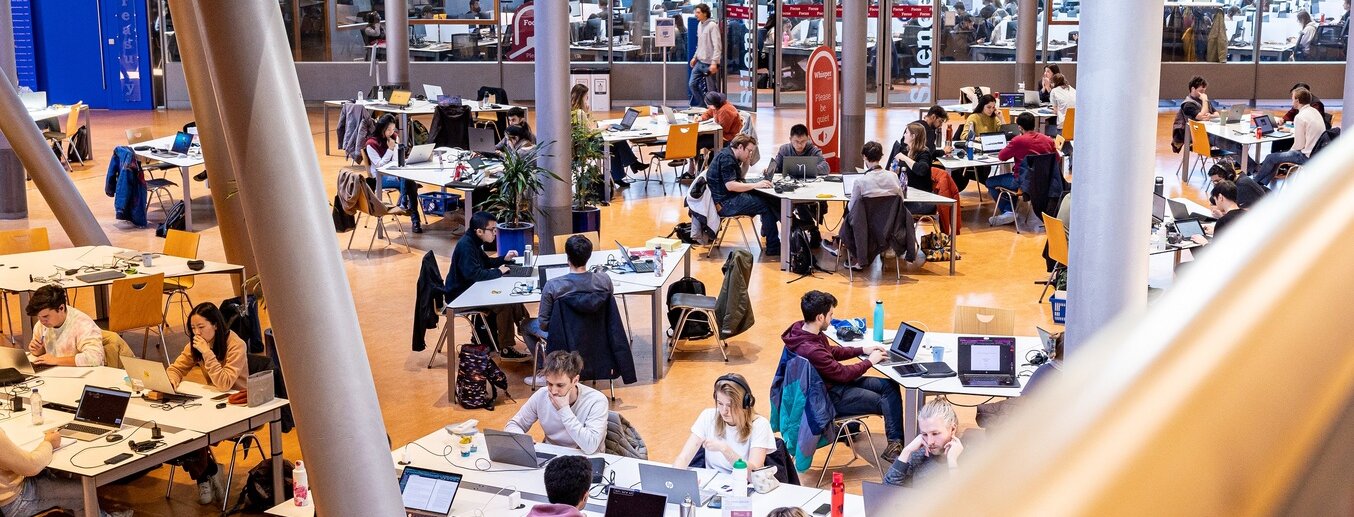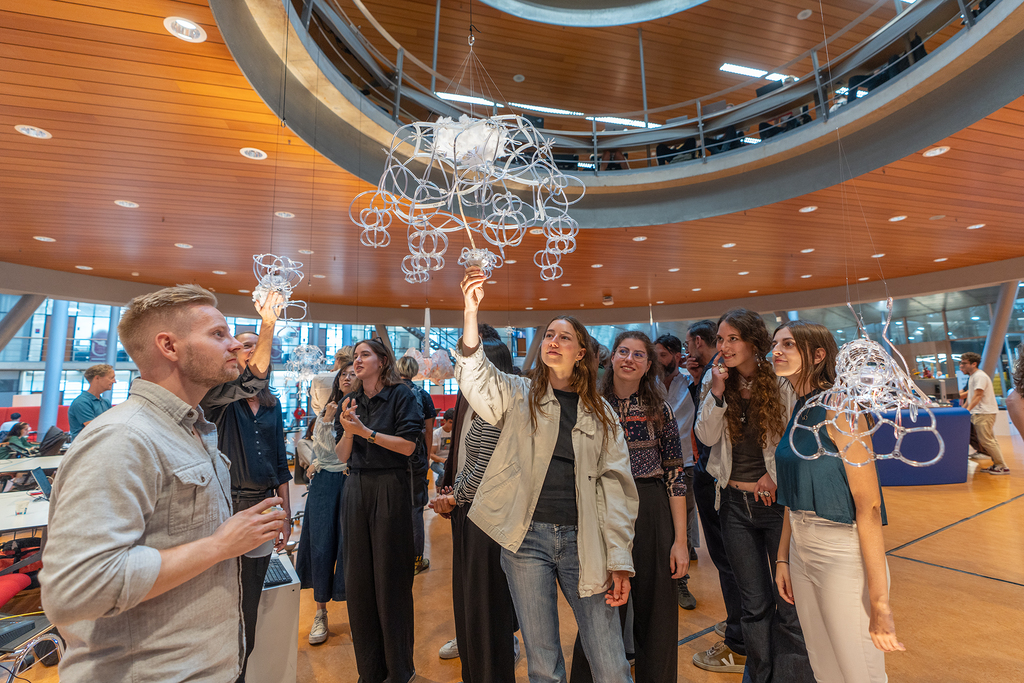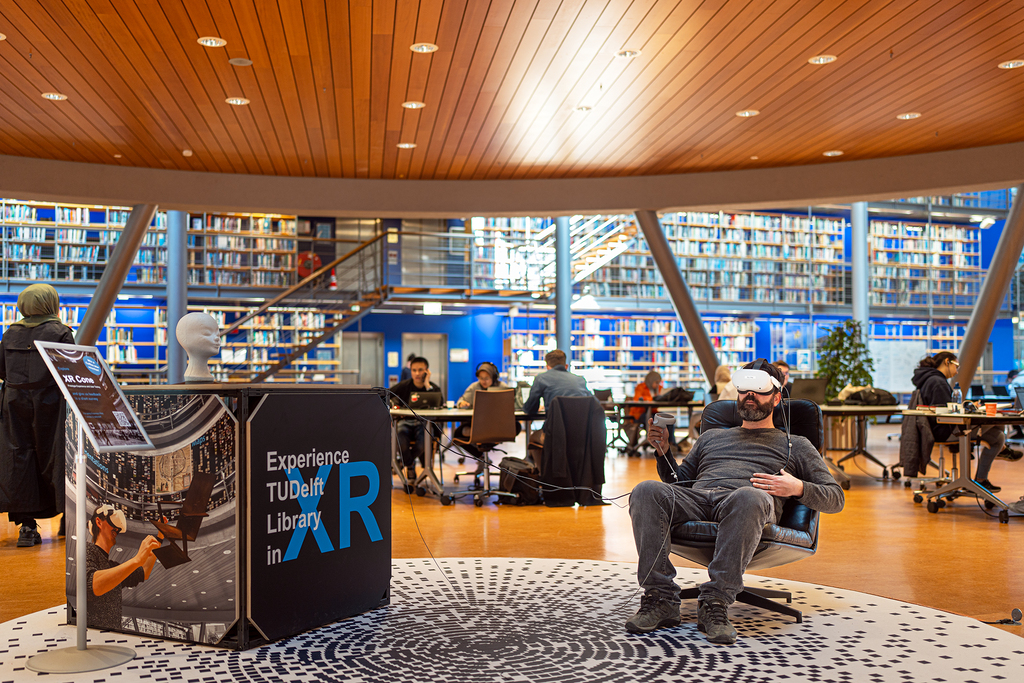Our story
For centuries, libraries have played an essential role in preserving knowledge and unlocking it to facilitate the emergence of new knowledge. The TU Delft Library has carried on this tradition since its founding in 1842. The library has collected and preserved knowledge for 182 years, making it accessible to all. The digitisation of research and education has led to the significant evolution of library services in recent decades, and the library's playing field has expanded.
Making knowledge accessible to all and sharing it
University libraries have been an indispensable partner for academic research and education since the emergence of universities. One well-known, inspiring example is the library of Alexandria founded by King Ptolemy I in 300 BC. He sent his people out to the far corners of the then-known world to gather all available knowledge and bring it to Alexandria: the internet avant-la-lettre. Scientific knowledge, literature, philosophy and poetry were all brought together in Alexandria. His son, Ptolemy II, expanded the library to include the Mouseion. This 'Temple of the Muses' was a centre of knowledge and research. Ptolemy invited writers, scientists, philosophers and poets from different cultural and religious backgrounds to live and work at the Mouseion. They were tasked with extracting the knowledge hidden in all those papyrus scrolls and then use it to produce new knowledge in dialogue with each other.
New digital information carriers
Over 2,000 years later, the TU Delft Library essentially still does the same – and more. The library brings knowledge and people together and encourages dialogue, which creates new knowledge and accelerates scientific progress. The digitisation of science has led to a great diversity of information carriers today. In addition to printed and digital books and journals, the TU Delft Library now also collects, stores and provides access to research results in the form of datasets, software, algorithms, AI models, objects, and Virtual Reality (VR) and Augmented Reality (AR) and eXtended Reality (XR) setups. The rise of digitisation and Open Science requires new, digital services. The TU Delft Library now also advises and supports students, researchers and teachers in managing research data, Open Access publishing, and developing open textbooks (Open Education).
Physical library: an inspiring learning environment
But as in ancient times, the physical library still plays a crucial role in serving our users, especially our students. It is a place for study, meeting and inspiration. The Library Learning Centre and Studium Generale organise lectures, debates and exhibitions that contribute to educating students to become reflective, critical thinkers and socially engaged engineers. At the NewMedia Centre XR-Zone teachers and students can experiment with Virtual Reality, Augmented Reality and eXtended Reality. Through projects such as the 'Collection Wall', we explore how to make a connection between the physical library and the digital collections.
The TU Delft Library also manages and provides access to TU Delft's art collection, special collections of old books and the academic heritage collection. These collections reflect the history of TU Delft.
Increasing social impact
Finally, the TU Delft Library helps the university build a bridge to society. Open Science enhances the quality of research and education results and increases social impact. The library helps teachers create open textbooks so that other teachers can reuse them. TU Delft also encourages and supports citizen science: the participation of citizens in scientific research. For example, citizens can participate in creating and collecting data. This leads to increased support for the implementation of research results in society and enriches the research process with new perspectives.


